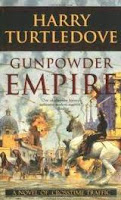He is also a student at the University of Ottawa, which to this Carleton University graduate may be the worst trait of all.
But I digress.
Horrible, horrible Charlie is the anti-hero in the new, self-published debut E-novel Run Charlie Run by Ottawa writer John Wiber (see Kobo and Amazon links). A recent English graduate from the University of Ottawa, Wiber’s book explores the dark side of Canada's national capital, while painting an unflattering portrait of the book’s protagonist.
At present, the book is available electronically for about $1, which is less than most cups of coffee, although Wiber does plan to release an audio version on iTunes by the end of the year.
The book’s plot focuses on a crime ring that operates in a run-down (some would say evil) house on Percy Street. Wiber’s creepy description of this operation is so realistic, I don’t think I will ever be able to stroll down Percy again without thinking of this novel.
Readers who find the terrible crimes portrayed to be unrealistic, only have to skim the recent coverage of criminal trials in the city to see that horrible crimes do occur in Ottawa.
With that in mind, I found the story to be quite captivating overall, even if the writing is uneven at times. Furthermore, if I were to level one criticism, it is that the story takes too long to get to the main plot that is pretty good, albeit quite disturbing. In my view, too many chapters are spent focusing on Charlie’s imbecile behaviour, before turning to the meat of the story which, if you enjoy horror or dark fiction, is a page turner.
Looking forward, Wiber tells me that he is currently working on two novels that he hopes to publish, one of which is a sequel to Run Charlie Run. Based on what I read in the first book, I look forward to reviewing his second literary release.
But I digress.
Horrible, horrible Charlie is the anti-hero in the new, self-published debut E-novel Run Charlie Run by Ottawa writer John Wiber (see Kobo and Amazon links). A recent English graduate from the University of Ottawa, Wiber’s book explores the dark side of Canada's national capital, while painting an unflattering portrait of the book’s protagonist.
At present, the book is available electronically for about $1, which is less than most cups of coffee, although Wiber does plan to release an audio version on iTunes by the end of the year.
The book’s plot focuses on a crime ring that operates in a run-down (some would say evil) house on Percy Street. Wiber’s creepy description of this operation is so realistic, I don’t think I will ever be able to stroll down Percy again without thinking of this novel.
Readers who find the terrible crimes portrayed to be unrealistic, only have to skim the recent coverage of criminal trials in the city to see that horrible crimes do occur in Ottawa.
With that in mind, I found the story to be quite captivating overall, even if the writing is uneven at times. Furthermore, if I were to level one criticism, it is that the story takes too long to get to the main plot that is pretty good, albeit quite disturbing. In my view, too many chapters are spent focusing on Charlie’s imbecile behaviour, before turning to the meat of the story which, if you enjoy horror or dark fiction, is a page turner.
Looking forward, Wiber tells me that he is currently working on two novels that he hopes to publish, one of which is a sequel to Run Charlie Run. Based on what I read in the first book, I look forward to reviewing his second literary release.
3 out of 5 stars























